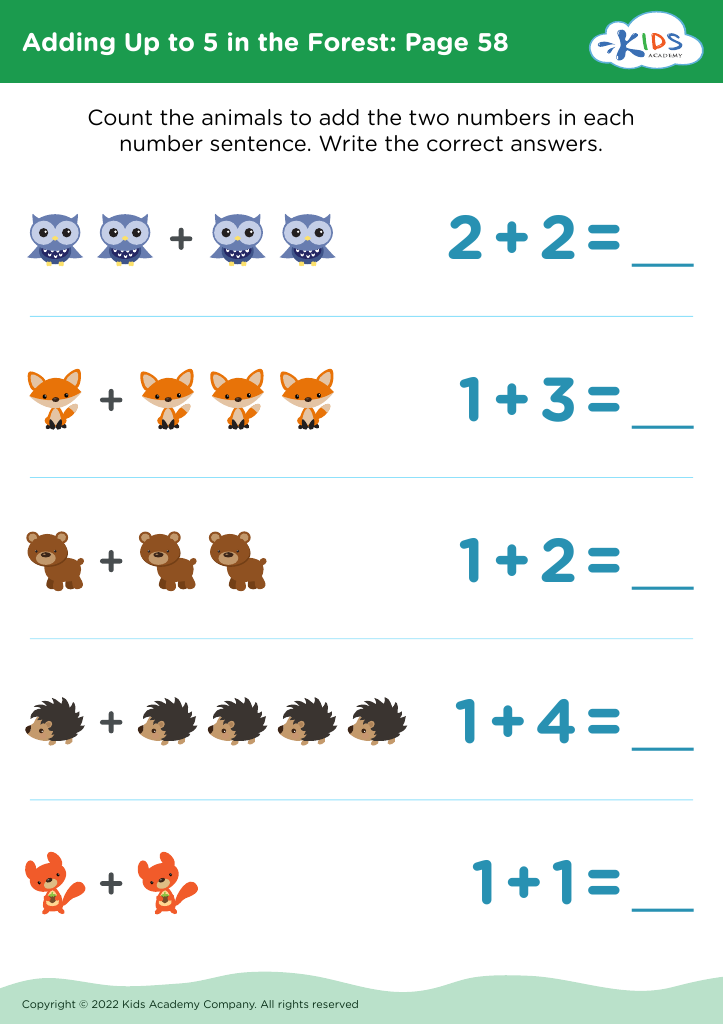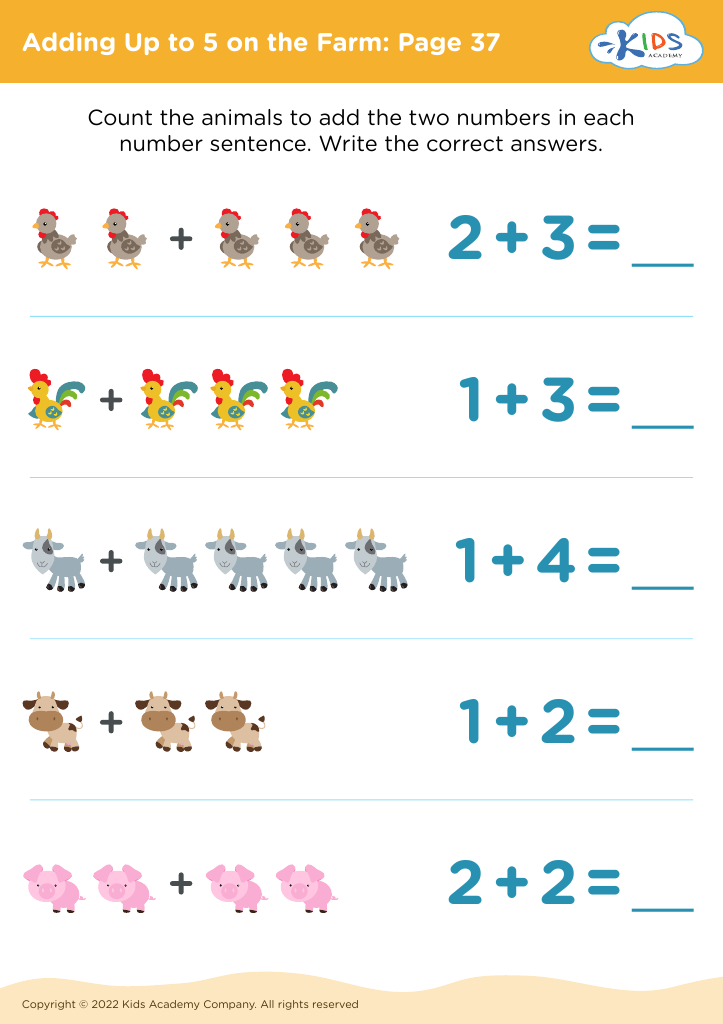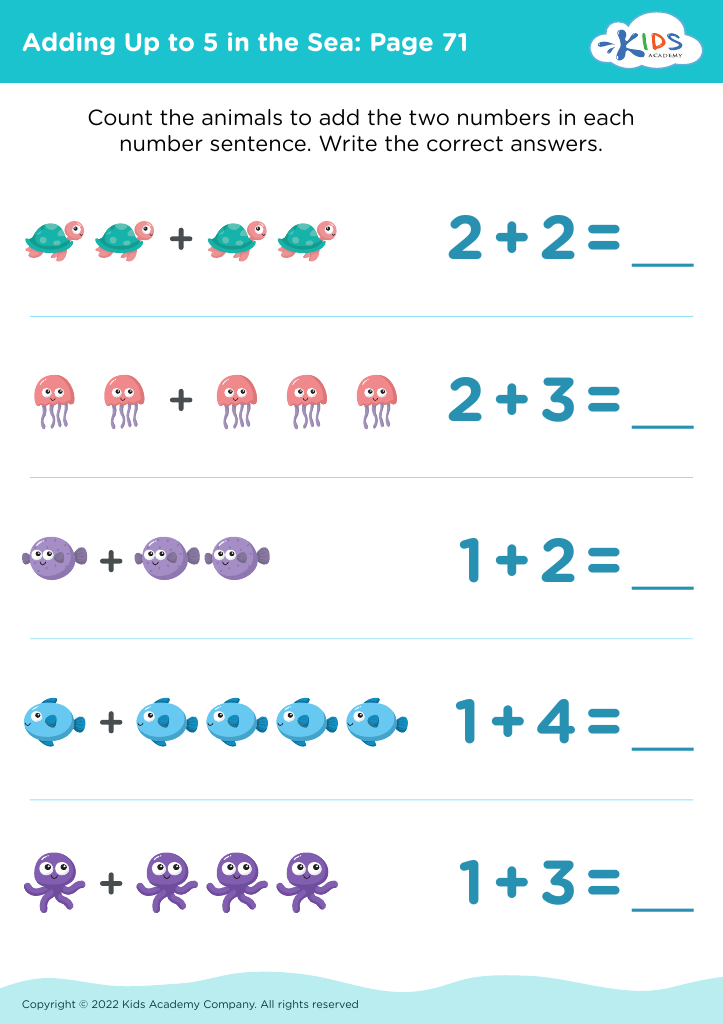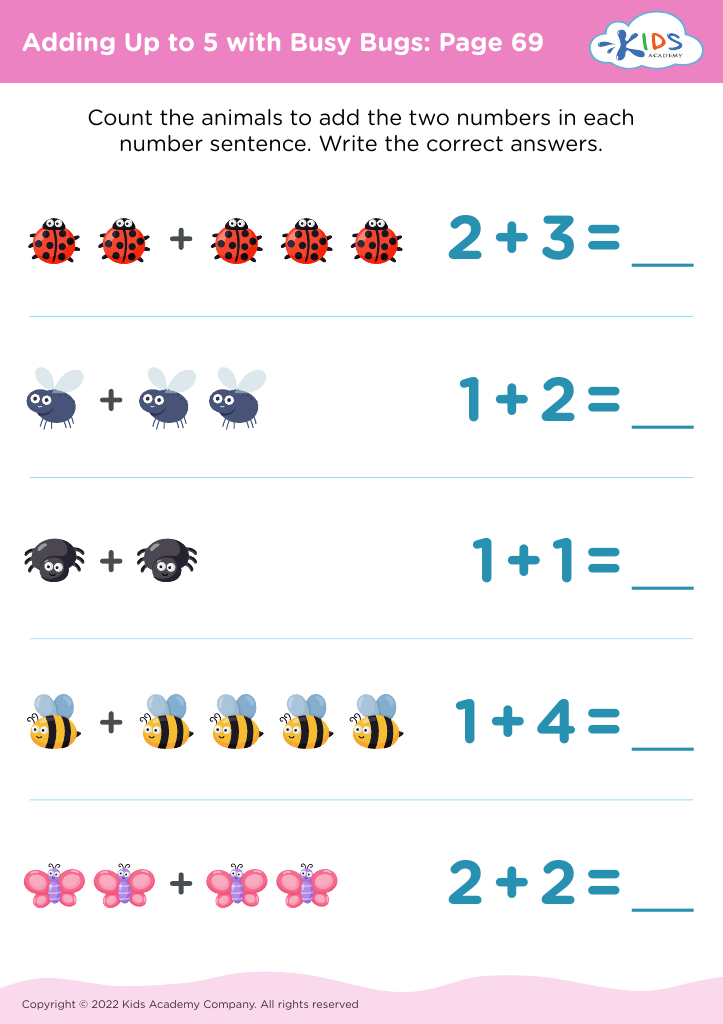Understanding numeracy Worksheets for Ages 4-7
4 filtered results
-
From - To
Discover engaging and educational numeracy worksheets designed for children aged 4-7 at Kids Academy. Our expertly crafted resources help young learners develop essential mathematical skills, such as number recognition, counting, basic addition and subtraction, and problem-solving. Each worksheet is designed with colorful, fun illustrations that keep kids motivated and excited to learn. Perfect for both classroom and home use, these worksheets ensure a solid foundation in numeracy, setting the stage for future success in mathematics. Help your child build confidence and proficiency in numbers with our Understanding Numeracy Worksheets! Explore a wide variety today.
Understanding numeracy for children ages 4-7 is pivotal to their cognitive development and future success. Numeracy encompasses more than just the ability to count; it involves a child’s grasp of basic mathematical concepts, which serves as the cornerstone of logical thinking, problem-solving, and decision-making skills.
For parents, nurturing numeracy skills at home ensures children are better prepared for school. Activities like counting objects during playtime or measuring ingredients while cooking introduce children to practical applications of math, reinforcing what they learn in the classroom.
For teachers, a strong numeracy foundation is crucial in kindergarten and early elementary curricula. Early exposure to math concepts such as number recognition, addition, subtraction, and patterns can boost a child’s confidence and interest in math, reducing math anxiety in later years. It also aids in developing other academic skills, including reading, as mathematical thinking strengthens neurons associated with logic and analytical reasoning.
Investing time in early numeracy also fosters perseverance and attention to detail. These skills are not only vital in academics but are also transferable to everyday life. In sum, a solid numeracy base lays the groundwork for a lifetime of learning, critical thinking, and problem-solving abilities necessary for personal and professional success.




















